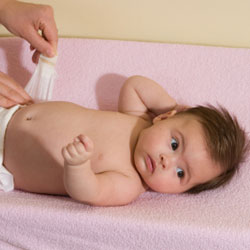New rules for safe sleep spotlight crib bumper risk for babies

Tuesday, November 1, 2011 - 11:07
Reposted from CBSnews.com
The American Academy
The guidelines - issued at the AAP’s annual meeting in Boston
The guidelines also call on parents to immunize their children, as there's evidence that immunization can halve a child's risk for SIDS. In addition, the guidelines recommend breast-feeding, as evidence suggests that it's another way to guard against SIDS.
The guidelines aren't aimed only at parents.
"It is important for health care professionals, staff in newborn nurseries and neonatal intensive care units, and child care providers to endorse the recommended ways to reduce the risk of SIDS and other sleep-related deaths, starting at birth," Dr. Rachel Moon, lead author of the new guidelines, said in the statement. "There needs to be more education for health care providers and trainees on how to prevent suffocation deaths and to reduce SIDS and other sleep-related infant deaths - our goal is to ultimately eliminate these deaths completely."
The academy has recommended since 1992 that babies be put to sleep on their backs, as the supine sleep position is associated with a lower risk for SIDS. Other longstanding recommendations include:
- Put babies to sleep on a firm surface. Car seats and other sitting devices are not recommended for routine sleep.
- Babies should sleep in the same room with their parents, but not in the same bed.
- Soft objects and loose bedding should be kept out of the crib. These include pillows and blankets as well as bumper pads.
- Women shouldn't smoke during pregnancy or after birth, and should receive regular prenatal care.
The National Institute of Child Health & Human Development has more on SIDS.


